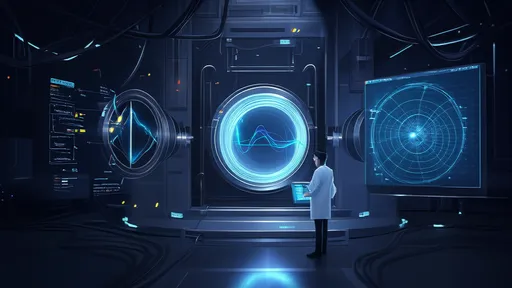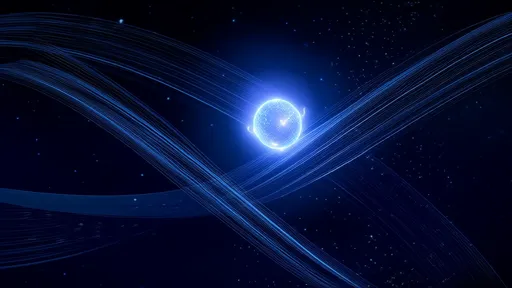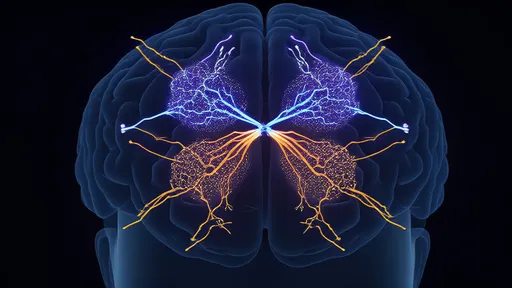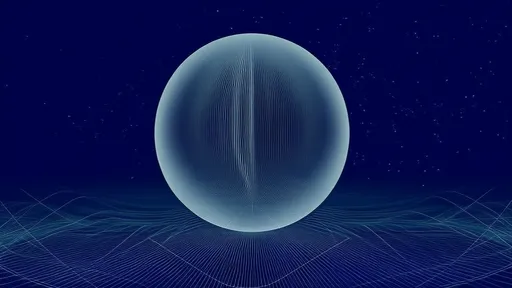The quantum world is full of paradoxes that defy our classical intuition, and perhaps none is more mind-bending than the Quantum Zeno Effect. At its core, this phenomenon suggests that a watched quantum pot never boils—or more precisely, that the act of continuous observation can freeze a quantum system in its initial state. It’s as if reality itself hesitates under the relentless gaze of measurement, a notion that challenges our deepest assumptions about time, change, and the role of consciousness in physics.
The effect takes its name from the ancient Greek philosopher Zeno of Elea, who famously argued that motion is an illusion through his arrow paradox. Just as Zeno’s arrow never reaches its target because it must first traverse half the remaining distance ad infinitum, a quantum system under constant observation appears to resist evolution. This isn’t merely theoretical wordplay; since its formalization by Misra and Sudarshan in 1977, the Quantum Zeno Effect has been demonstrated in laboratories using trapped ions, superconducting qubits, and even nuclear spins.
How does this counterintuitive freezing occur? In quantum mechanics, the state of a system evolves according to the Schrödinger equation until a measurement collapses the wavefunction. Frequent measurements reset this evolutionary clock, effectively confining the system to a Hilbert-space prison of its own initial conditions. The mathematics reveals an exquisite irony: the more closely we watch, the less we allow nature to perform its quantum magic. It’s the ultimate example of the observer effect gone wild—not merely disturbing what’s measured, but fundamentally arresting its dynamics.
Recent experiments at the University of Maryland have pushed this phenomenon to its limits. By using laser pulses to "observe" a superconducting qubit every nanosecond—faster than its natural oscillation period—researchers kept the artificial atom in its excited state nearly indefinitely. Normally, such an excited state would decay within microseconds, but under this quantum surveillance, the system became trapped in what physicists whimsically call the "Zeno subspace." The implications ripple across quantum technologies: could strategic observation protect fragile quantum states in future quantum computers?
But the Quantum Zeno Effect isn’t just about freezing systems—it has a flip side. The so-called Anti-Zeno Effect can actually accelerate quantum decay under certain measurement conditions. This yin-yang relationship depends crucially on the measurement interval: too frequent measurements inhibit evolution, while less frequent but carefully timed observations can hasten it. The boundary between these regimes reveals profound insights about decoherence timescales and the very nature of quantum jumps.
Philosophically, the effect reignites age-old debates about the role of consciousness in quantum mechanics. While most physicists interpret the "observation" as any interaction that entangles the system with its environment, some speculate about deeper connections between mind and matter. The Zeno Effect’s eerie ability to suspend reality’s natural flow through measurement echoes Eastern philosophical traditions where perception shapes existence. Even if we dismiss such metaphysical interpretations, the practical consequences are startling enough: measurement isn’t just acquiring information—it’s an active intervention in quantum dynamics.
As quantum technologies mature, harnessing the Zeno Effect may become crucial. Quantum error correction schemes already employ Zeno-like stabilization techniques. In quantum biology, researchers speculate whether photosynthetic complexes might exploit Zeno mechanisms to maintain quantum coherence. Even in fundamental physics, some theories suggest the effect could explain why certain exotic particles appear so long-lived—perhaps the universe itself is constantly "measuring" them through environmental interactions.
The Quantum Zeno Effect stands as one of quantum theory’s most poetic truths: that looking too closely at something can make it stop being itself. It teaches us that in the quantum realm, observation isn’t a passive act but a transformative force—one that can freeze time’s arrow at the smallest scales. As we peer deeper into nature’s quantum foundations, we may find that reality itself depends on whether, and how often, we choose to look.

By /Jun 19, 2025

By /Jun 19, 2025

By /Jun 19, 2025

By /Jun 19, 2025

By /Jun 19, 2025

By /Jun 19, 2025

By /Jun 19, 2025

By /Jun 19, 2025

By /Jun 19, 2025

By /Jun 19, 2025

By /Jun 19, 2025

By /Jun 19, 2025

By /Jun 19, 2025

By /Jun 19, 2025

By /Jun 19, 2025

By /Jun 19, 2025

By /Jun 19, 2025